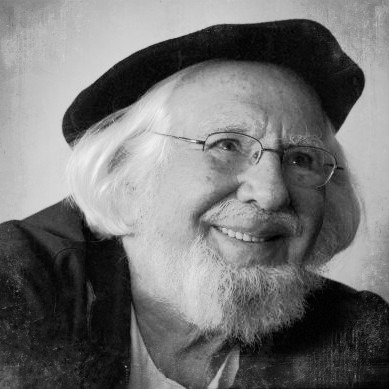
Ernesto Cardenal
Ernesto Cardenal; a priest, author, and politician from Nicaragua; has been fighting for justice as a revolutionary for more than 50 years. As a priest who doesn’t seek paradise in the hereafter, as a poet with political verses, and as a human who views the world as one, Ernesto is opposed to today’s idea of a globalised world. This makes him more relevant than ever.
Biography
Born in Granada, Nicaragua in 1925, Ernesto grew up in a rich family with a Spanish background.
With his love for literature from an early age on, Ernesto decided to study literature in Managua, Nicaragua; Mexico; and New York. After his studies, he went back to Nicaragua, where he wrote his first works. The year 1957 became a turning point in his life when he decided to become a novice in Kentucky. After his novitiate, he left the monastery in 1959 and studied theology in Mexico. In 1961, he moved to Columbia to continue his studies and to work as a seminary teacher. Here, he wrote “Salmos”, one of the most influential pieces of Latin American poetry of this century. In 1965, he was ordained. One year later, he founded a Christian monastery-like community on the Solentiname Islands in Nicaragua. It became a place of reflection, poetry, and solidarity with the poorest of the poor.
After the community was shut down in 1977 by the Somoza dictatorship, Ernesto went into exile in Nicaragua because of the political situation. Here, he became part of the resistance against the Somoza regime. In 1979, Ernesto was elected for Culture Minister of Nicaragua. In 1982, Ernesto came to East Berlin for a visit and stirred up a controversy by stating that the resurrection was not an individual but a collective act in his opinion. To him, paradise is thus a sort of final humanitarian community. In 1985, he was suspended from his priestly work by the Vatican.
In 1989, he founded the aid project “Casa de los tres Mundos” with Dietmar Schönherr. Over the course of the next few years, he was awarded a number of different important prizes. Today, Ernesto lives in Managua and still visits the Solentiname Islands regularly.